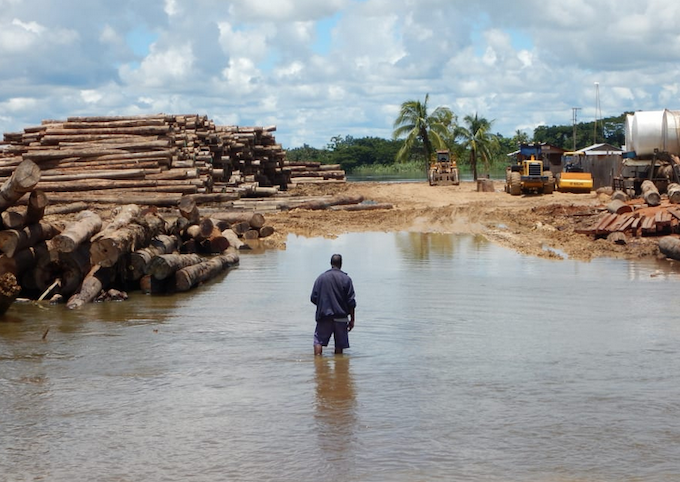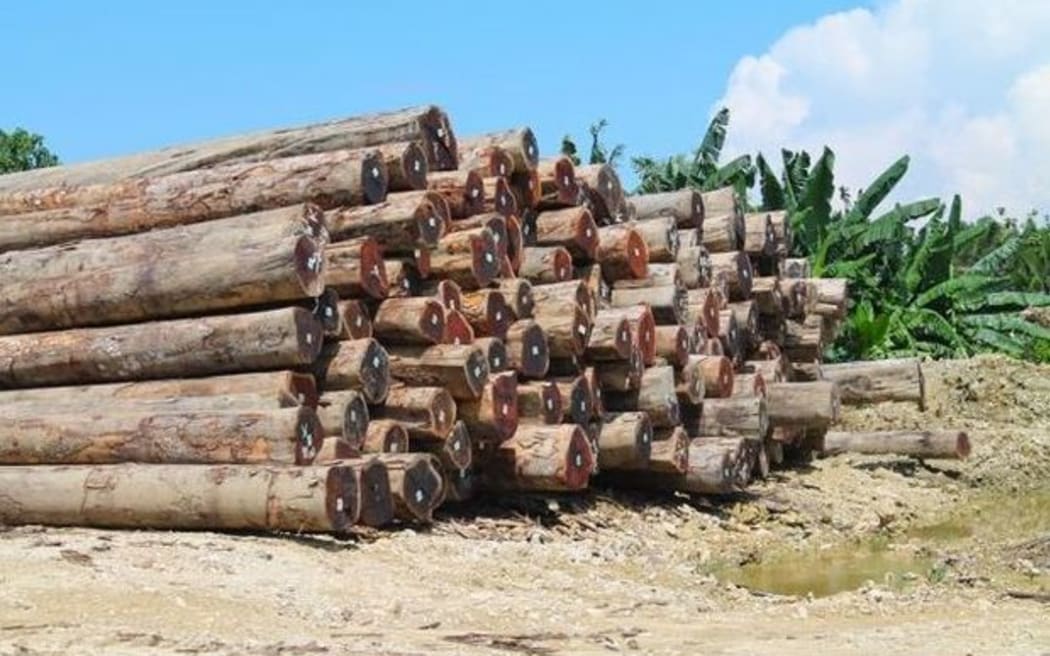
By Don Wiseman, RNZ Pacific senior journalist
Civil society groups wanting to see an end to destructive logging practices by foreign companies in Papua New Guinea, say these companies are being given forest clearance authorities and then misusing them.
The PNG advocacy group, Act Now!, and Jubilee Australia said the forest clearance authorities (FCAs) are intended to allow limited pockets of forest to be cleared for agricultural or other use.
Eddie Tanago of Act Now! said a case study they conducted into West Sepik’s Wammy Rural Development Project, which is run by Malaysian logging company Global Elite Ltd, was meant to result in the planting of palm oil and rubber trees.
- LISTEN TO RNZ PACIFIC WAVES: Large scale logging continues in PNG despite Govt opposition
- READ MORE: Other PNG illegal logging reports
“Instead, it used it as a front. And we’ve seen hundreds of thousands of cubic meters of round logs being exported. Now, this particular operation has been going on for almost 10 years, and this company has sold more than US$31 million worth of round logs,” he said.
Tanago said there was no sign of any attempt to rehabilitate the land for other use.
ACT Now! said the Wammy project was also breaking other laws because the land was subject to the SABL (Special Agricultural Business Leases) Commission of Inquiry in 2013 and it was evident then that the landowners’ free, prior and informed consent had never been given, so there should not have been any logging on it.
Tanago said Wammy was just one of about 24 logging operations making use of an FCA licence, resulting in huge quantities of logs being exported.
“Together this activity exploiting FCAs covers about 61,800 hectares of forest, and that’s equivalent to about 11,000 football fields. So that’s really, really massive,” he said.
Act Now is “calling on the Forest Board and the PNG Forest Authority to extend the current moratorium on the new FCAs”.
“There was one that was announced in the beginning of this year that says that they were not going to issue any new FCAs. We want that to extend. We want logging in all the existing FCAs to be also suspended. And there should be a comprehensive public review of these projects.”
The PNG government has previously stated it wanted to end round log exports by 2025, but Act Now! points out that in the first six months of the current year exports have totalled 1.1 million cubic metres.
“The export log volumes now are currently very high. And the PNG Forest Authority is really failing to meet the reduction targets as set down in the medium term plan,” he sid.
“This is in breach of the targets that are set out by the government, plus, all the promises that we’ve seen, like the recent one bill made by Prime Minister [James] Marape when the French President was around.”
On the visit to PNG, President Emmanuel Macron and Marape visited a lookout in the Varirata National Park picnic area, renaming it the Emmanuel Jean-Michel Frederic Macron lookout point.
The Pacific Islands News Association (PINA) reports that the walk through the lush national park was underlined by the signing of a new environment initiative — backed by French and European Union financing — that will reward countries that preserve their rainforests.
Marape said the country’s rainforest was the third largest and undisturbed tropical rainforest in the world and preserving its integrity was of the utmost importance.
Act Now! would agree, saying PNG has to be looking to preserve the rainforest and reduce deforestation, but the current signs are not good.
RNZ Pacific contacted Global Elite Ltd for comment on this story but there was no response.
This article is republished under a community partnership agreement with RNZ. The audio was first broadcast on Friday, 15 September 2023.














































